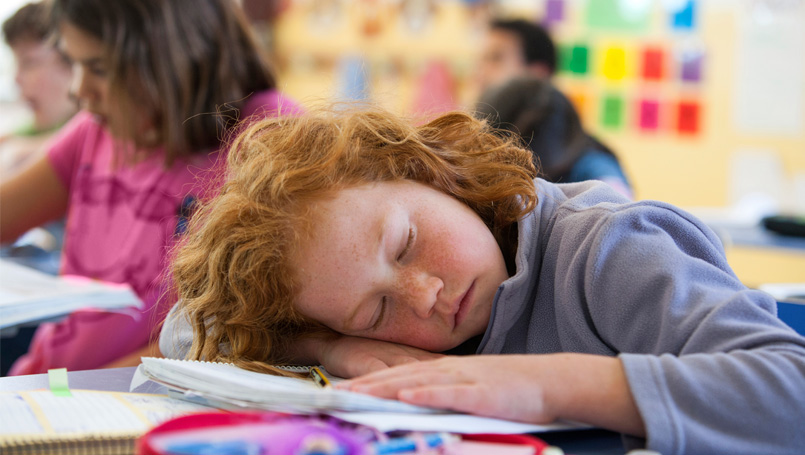
Back to school, means a return to school bedtimes.
Sleep expert Gary Trock, M.D., is encouraging parents to ease their children back into a school sleep schedule about two weeks before classes resume. Most area students will head back to school on the Tuesday after Labor Day.
"It's important that students have a period of 10 - 14 days to readjust. To be effective, it must be a gradual process," says Dr. Trock, medical director of pediatric sleep evaluation services at Beaumont Children’s. "Parents need to set limits on exercise and the use of electronics - no exercise two hours before bedtime and no electronics one hour before."
Daniel Frattarelli, M.D., Beaumont pediatrician, suggests adjusting their wake-up time if getting your children to go to bed earlier is a challenge. Waking them up earlier will make them tired earlier.
“You should gradually wake your child up earlier and earlier until they’re comfortable at getting up at school time,” he said.
The American Academy of Sleep Medicine offers the following tips to ensure children and teens get a restful night's sleep:
- Follow a consistent bedtime routine.
- Establish a relaxing setting at bedtime.
- Make the bedroom quiet, dark and a little bit cool.
- Do not have computers or televisions in a bedroom. Make sure electronics are turned off about an hour before bedtime.
- Get up the same time every morning.
- Avoid foods or drinks that contain caffeine, as well as any medication that has a stimulant, before bedtime.
- Don't go to bed hungry, but don't eat a big meal before bedtime.
- Avoid any rigorous exercise two hours before bedtime.
After a long summer, most students need to reset their biological clocks. A lack of sleep can adversely affect performance, attention span and physical health," explains Trock. "Parents need to make sure their children go to bed earlier each night. Sunlight exposure each morning is important, too."
Trock also cautions parents not to let their children sleep in on the weekend. This will undo their best attempts to reset their internal clocks for the coming school year.
The amount of sleep a child needs depends on their age and other metabolic factors. In general, children between 5 and 12 years old need about 10 hours, while teenagers can get by on eight or nine. If they need naps, keep them to 20 minutes or less - any longer and they may feel groggy throughout the day.
